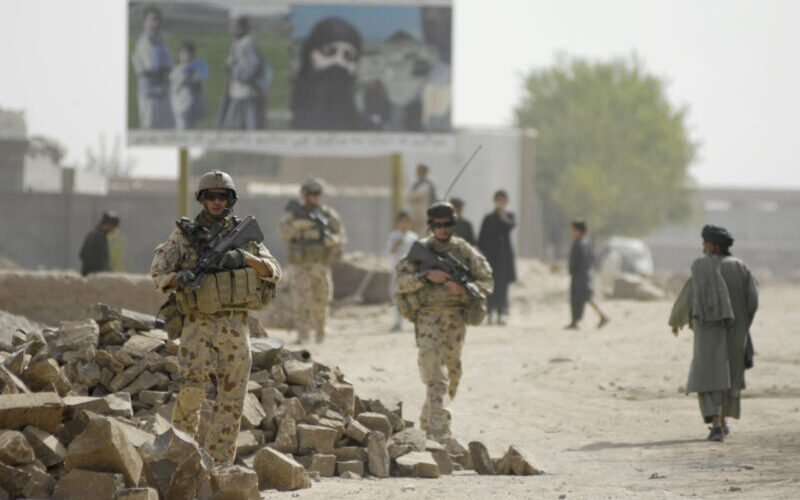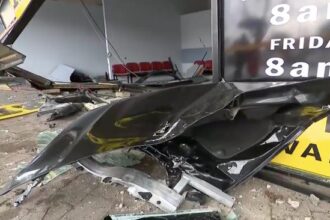David McBride’s conviction highlights justice system failure
David McBride’s fate now represents a troubling chapter in Australia’s defence and justice systems, where whistleblowers are jailed while military leadership escapes scrutiny for national security breaches. On May 28, his appeal against a conviction for leaking classified documents failed, sealing his sentence for exposing the truth about alleged war crimes by Australian special forces in Afghanistan.
Defence ignored similar high-level leaks
While McBride was pursued relentlessly, senior Defence officials simultaneously “buried” an internal investigation into similar or worse classified leaks. These leaks came during the Brereton war crimes inquiry and involved dozens of sensitive files passed to Fairfax Media. Yet, no one in senior command was held accountable.
Leaked evidence revealed similar atrocities
Among the leaked material were highly classified surveillance images, patrol reports, and operational chats—documents that exposed the same atrocities McBride highlighted. These materials, tied to high-profile allegations against SAS soldiers, including Ben Roberts-Smith, came from the Defence Secret Network and were funneled via the Vice Chief of the Defence Force’s office.
RAAF drone footage published without consequence
Aerial imagery from Royal Australian Air Force drones, key to proving war crimes, was published without consequences for those responsible for the leaks. Yet McBride, the only figure prosecuted, sits in jail. As Senator David Shoebridge put it, “Whistleblowers play an essential role in accountability… McBride is now in jail simply because he spoke the truth.”
Brereton Inquiry protected military leadership
The Brereton Inquiry, which found evidence of 39 unlawful killings, deliberately exonerated top military commanders by concluding they lacked control over lower ranks. However, internal surveillance drone operators contradicted this by reporting orders to divert cameras away from kill zones, allegedly to avoid capturing incriminating actions.
Surveillance footage showed possible command involvement
One critical surveillance mission by a US spy aircraft over Darwan village in 2012—where Ali Jan was allegedly executed—was among footage that implicates command awareness. Tasmanian Senator Jacqui Lambie subsequently referred this material to the International Criminal Court (ICC), claiming command-level liability under the Rome Statute.
Internal Defence investigation buried without explanation
Despite the scale of the leak and the gravity of its contents, Defence’s internal probe headed by Celia Perkins was never concluded publicly. Defence sources revealed the investigation was “buried,” hidden away in bureaucratic limbo even as three internal complaints from senior personnel warned of deliberate leaks from within ADF headquarters.
Oversight report delayed until McBride sentencing
These events unfolded while Defence Minister Richard Marles delayed the release of the Afghanistan Inquiry Independent Oversight Panel’s final report—until the day McBride was sentenced. The panel harshly criticized Brereton’s decision to absolve commanders, adding weight to suspicions that institutional self-protection trumped justice.
Media focus bypassed Defence leadership
The media’s role also warrants scrutiny. While McBride initially approached Fairfax, it was the ABC’s Afghan Files report that used his material. Yet even ABC journalist Dan Oakes admitted his story fell short: “I rang David and I said, ‘Look I know the story you wanted told … I’ve decided that’s not the story.’”
Top brass shielded despite mounting evidence
Mainstream outlets focused heavily on lower-ranked soldiers while giving Defence leadership a pass. Although some journalists aggressively pursued Ben Roberts-Smith, the institutional protection of generals, even amidst leaked proof of their involvement, has persisted.
General Angus Campbell avoids accountability
Shoebridge questioned General Angus Campbell, now Australia’s Ambassador to NATO, on his knowledge of war crimes during his 2011–12 command. Campbell claimed, “I don’t have an awareness now, 12 years later.” This response, coupled with his diplomatic appointment, highlights the protection extended to top brass.
Whistleblowers punished for internal complaints
Meanwhile, whistleblowers like McBride—who made internal complaints before leaking documents—are criminalized. The disparity raises a critical question: why is Australia punishing those who expose the truth while shielding those implicated in wrongdoing?
Drone footage exposed atrocities in Afghanistan
Classified RAAF drone imagery of sites like the Whiskey 108 compound and Darwan village were central in exposing serious allegations, including the killing of disabled civilians. Yet Defence ignored warnings from its own personnel about manipulation of drone footage and redirected focus to punishing McBride.
AFP raid on ABC sent chilling signal
The ABC headquarters raid in 2019 by the Australian Federal Police, ostensibly to seize Afghan Files materials, further cemented the government’s hostility towards truth-tellers. This occurred nearly two years after the leaks from within Defence began—leaks that were never pursued with equal vigour.
VCDF office leaked files without repercussions
The Office of the Vice Chief of the Defence Force, reportedly the origin of the Fairfax-leaked files, saw no arrests or prosecutions. Former VCDF Ray Griggs, who oversaw this office during the period in question, later assumed leadership of the Department of Social Services. No wrongdoing is alleged, but silence from involved parties continues.
Internal complaint about drone redirection ignored
Moreover, the complaint by a RAAF surveillance specialist—that SAS commanders intentionally redirected drone coverage to avoid capturing war crimes—was dismissed outright. Brereton’s findings barely touched on these manipulations, instead suggesting that technology constraints, not leadership decisions, impeded oversight.
Australia may be breaching international obligations
This whitewashing, alongside the lack of criminal accountability for higher command, contradicts Australia’s obligations under the Rome Statute. International law mandates that leaders aware of atrocities who do not act may themselves be culpable for war crimes.
McBride’s case reflects institutional betrayal
While the public, politicians, and press are slowly waking up to the truth, David McBride remains imprisoned for his courage. The failure to investigate Defence’s internal leaks, the suppression of damning oversight reports, and the protection of senior figures all speak to a deeply broken system.
A whistleblower exposed war crimes—now he pays the price
What began as an effort to expose war crimes has instead revealed a more profound rot: institutional betrayal, not only of justice but of those like McBride who dared to uphold it.






